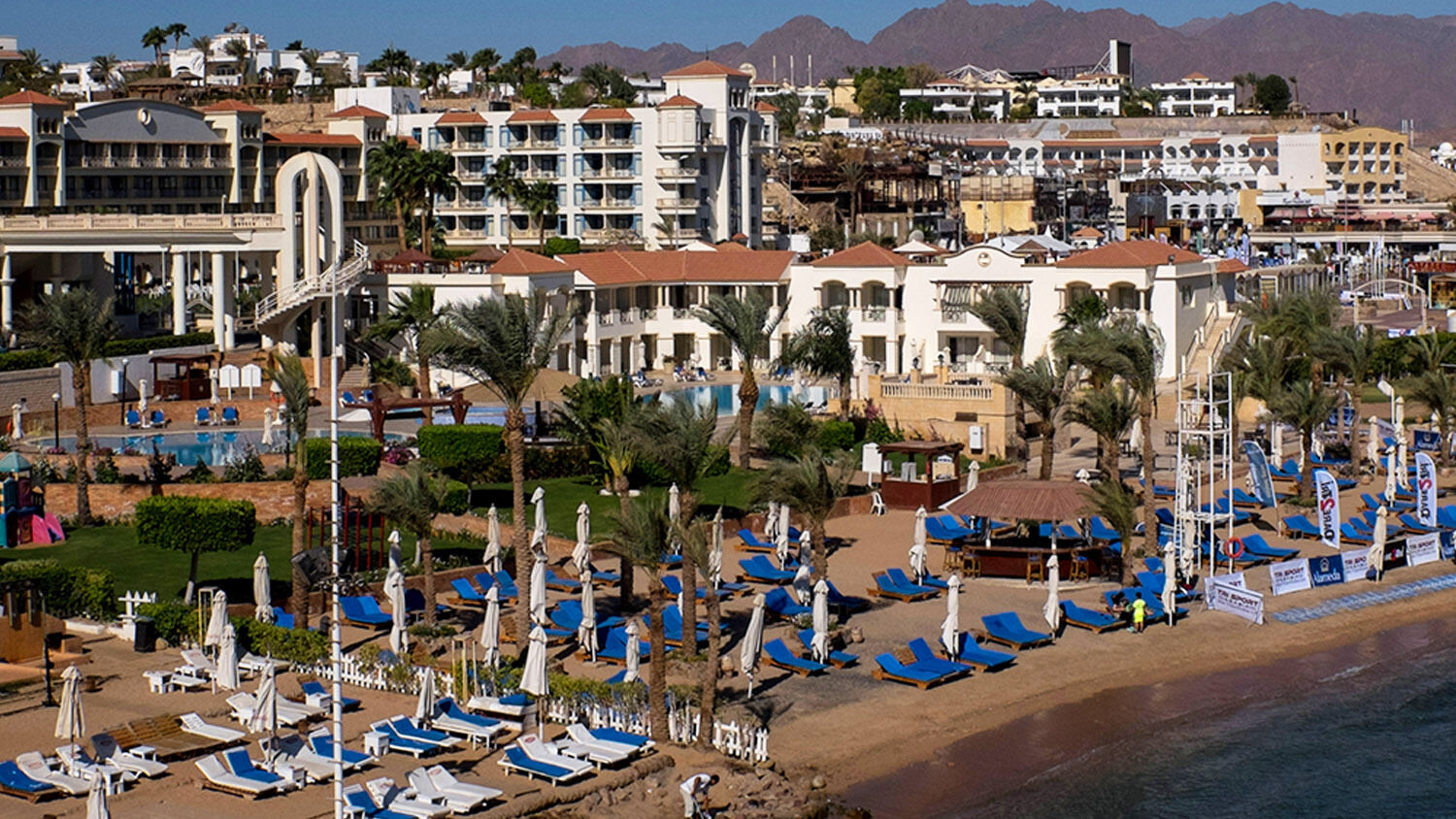
Egypt’s Tourism Industry Suffers Another Blow
Despite the Egyptian government continuing its crackdown on dissenting organizations across the country, terrorists are still having great success in inflicting economic damage on the nation.
This was highlighted on March 28 when Israel warned its citizens to immediately get out of Sharm el-Sheikh—a popular tourist destination on the Egyptian coastline.
The warning brings more bad publicity to an industry that is vital to the Egyptian economy.
Because of its financial importance, the tourism industry has been a prime target of terrorists in Egypt for years—particularly since the fall of the Muslim Brotherhood. In 2015, Egyptian Prime Minister Ibrahim Mahlab told his cabinet that “Egypt is in a real state of war.” The country’s rich history and sun-drenched beaches have been a keen attraction for tourists and an easy target for terrorists. Before the Arab Spring, this sector made up around 14 percent of Egypt’s economy. More importantly, it was a vital way for the nation to get its hands on foreign currency.
In 2010, before the Arab Spring, Egypt saw the arrival of 14.7 million tourists. In 2016, it saw less than 5.5 million. The first quarter of 2016 saw a drop of 1 million tourists on the year previous, netting a meager $500,000 for the tourism industry.
While Israel did not give details on any potential attack at Sharm el-Sheikh, it said that an attack against tourists by the Islamic State was imminent.
The tourist hot spot has suffered in recent years and is an accurate representation of Egypt’s entire tourism industry.
On Saturday, October 31, a bomb exploded on a Russian passenger plane over the Sinai Peninsula. All 224 people on board were killed. The Trumpet’s Jerusalem correspondent, Brent Nagtegaal, reported on the incident:
[W]ithin a week, the United Kingdom had halted flights in and out of the popular tourist destination of Sharm el-Sheikh, declaring that the crash was most likely the result of a bomb on board.
After holding out for an extra couple of days, Russian President Vladimir Putin one-upped the Brits, not only ordering the immediate cessation of all flights in and out of the Sinai Peninsula, but also canceling Russian flights everywhere in Egypt.
Many of those flights have still not resumed. The toll on Egypt’s tourism industry is vast. Sharm el-Sheikh alone has lost some 900,000 British tourists according to the Telegraph, with resorts operating at just 25 to 35 percent of their capacity.
Cairo is the most popular Egyptian tourist destination for Russians. Following the bombing, Egypt’s tourism minister said that Cairo stands to lose in excess of $250 million per month. That was a year and a half ago. Since then, security may have improved but prospects have not. Governments in Britain, Russia and Israel are still preventing or advising their people not to travel to the Sinai Peninsula and other parts of Egypt.
As the Trumpet has repeatedly warned, the terrorists are winning. Egyptian President Abdel Fattah al-Sisi has inherited a broken nation with crippling unemployment and poverty. Regional instability encompasses the nation, and no matter how hard Sisi’s crackdown is, terror attacks and threats occur on a regular basis.
Nagtegaal finished his article:
Continue to watch as Sisi struggles to keep the Islamists from taking over, all the while doing his best to neutralize negative world public opinion against his internal policy decisions. To read the Trumpet’s long-view forecast of Egypt’s future, read “Iran-Egypt Alliance Prophesied.”
In that article, Trumpet editor in chief Gerald Flurry drew the connection between Iran’s regional state-sponsorship of terrorism and the nation of Egypt, all in the context of what is recorded in the Bible:
For 13 years we have prophesied that there would be a radical change in Egyptian politics. That prophecy is now coming to pass!
The moderate government in Egypt is being threatened by a popular and growing Iranian-aligned, anti-American, radical Islamist movement. In fact, we expect the most radical elements within Egypt to assume control and directly ally themselves with Iran. This worst-case scenario for the United States is just what the Bible prophesied will occur soon.
The booklet Mr. Flurry referenced in his article, The King of the South, is available free upon request.
But notice, this article by Mr. Flurry was published on Feb. 1, 2008—before the rise of the Muslim Brotherhood! Look at what happened! Radicals took control. As we know, they lost their grip shortly thereafter. But it didn’t end there. The ramifications of that year in power are still being felt. Egypt is economically crippled and inflicted with deep-seated volatility. Why? Because, in part, pro-Iranian radicals wrecked the nation and the current government has been unable to eradicate them. And as the Middle East proves time and again, Iran loves to influence a crisis—the Arab Spring is ample proof.
Mr. Flurry continued:
We have prophesied for over 13 years that Iran would head up the “king of the south.” We have also prophesied that the Iranian power would ally with Egypt. How did we know that? Because God said so in His Bible—something you can prove.
There has been a radical change in Egyptian politics. The book of Daniel talks about that change. Daniel spoke of a “king of the south” (Daniel 11:40). He prophesied that king of the south would ally himself with Egypt in this end time.
Instability and economic woe is preventing “moderates” from regaining the footing they held in the era of Egyptian President Hosni Mubarak. Watch as the ongoing terrorist threats and attacks keep down the moderates and lead again to a “radical change in Egyptian politics.”
